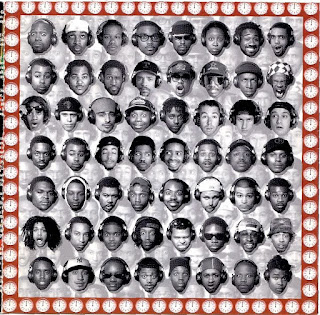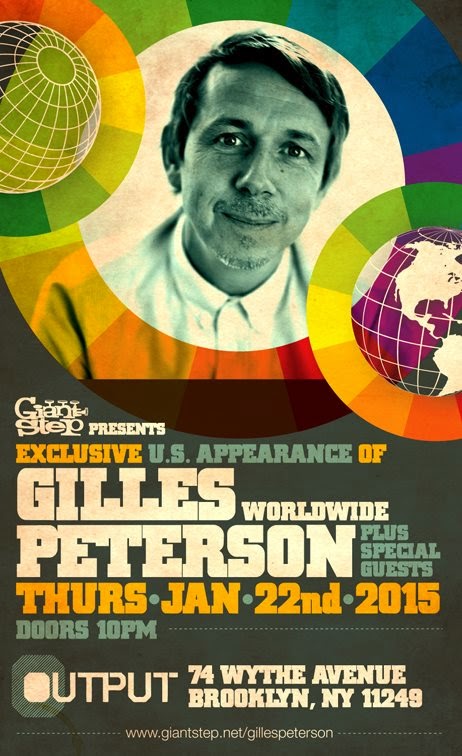( dug this out of my email archives... it was a draft of an internal company communication for 2013, meant to commemorate the 50 year anniversary of the March on Washington... this version never survived the committee editing process... but a few friends have thought it was decent, so I figured I'd share )
I'm writing on behalf of Black@TW to let you know that today marks the 50th anniversary of the historic March on Washington for Jobs and Freedom here in the U.S.
The first thing I want to do is ask you not to read the rest of this email... not right now anyway... much better would be to spend a non-billable hour doing the following:
- Reading Wikipedia's comprehensive and imho balanced entry on the march (estimated time: ~45 minutes, but I'm a slow reader)
- View the Rev. Dr. Martlin Luther King Jr.'s full I Have a Dream speech ( time: ~17 minutes )
By doing these two things, you'll have much greater knowledge
of this event than the average American, and you'll be able to make an
informed choice about whether the rest of this email is worth your time
:-)
Go ahead, I'll wait...
... you back? Cool! And why might the rest of this email be worth your time?
[
warning, the opinions expressed below are solely those of Cliff and not
necessarily those of Black@TW or any other TW person or entity ;-) ]
The "standard narrative" is a simplification
The standard narrative about The March on Washington typically goes like this:
On a hot August day in 1963, 250,00
people peacefully assembled in our Nation's Capital to hear Dr. Martin
Luther King Jr. deliver his famous 'I Have a Dream' speech. The March
on Washington had a major influence on the passage of the Civil Rights
act in 1963 and the Voting Rights act in 1964.
I think most observers would agree that this
description is factual. And I get it, narratives that last need to be
simple. My issue is not with the facts, but it's with the connotation
of inevitability, magic, and divine providence that this simplification
supports & promotes. This was destined to happen, right? On
August 28th, there was this spontaneous gathering in the Capitol on the
side of justice and righteousness. A great historical figure gave a
kick ass speech and then we passed the Civil Rights Act... yay! (yes,
that was sarcasm)
Because you read the Wikipedia entry, you already
know that this march was in no way predestined. There were active
attempts to prevent it. The PA system was sabotaged the day before the
gathering. There were extensive compromises made so that the event
could go forward, speeches were edited so as not to provoke the powers
that be... if you don't believe me, ask John Lewis.
You know that the National Mall's Park Police were in position to cut
the audio if they deemed it necessary ( see that uniformed white guy
next to Dr. King during his speech? ) You know that even in this time,
the Black community did not necessarily speak with one voice, with Malcolm X being a key critic.
Why is the "destiny" implication an issue for me?
Because the tacit assumption that "sooner or later, things will just
work out", is morally lazy at best, and an abdication of each of our
personal responsibility at worst.
Another simplification is that the march was "The
Dr. Martin Luther King show". Again, I get it. It is a really kick ass
speech... one of the best ever. King's prodigious oratory skill
combined with a mass media capable of broadcasting this into "every home
in America" certainly had an impact... I would never deny that, and I'm
thankful for it.
But, because you've read the Wikipedia article, you
know that the march was "coordinated" by multiple organizations and
their leaders (known as the "big six").
You also know that the nitty gritty organizing and coordination was
overseen by by Bayard Rustin, a gay black man who will posthumously
receive the Medal of Freedom today
from the President. You also know that Rustin worked with several
hundred volunteers in Washington D.C. and hundreds more around the
country to pull off the event.
The point: Dr. King deserves every bit of praise
and admiration he receives for seizing that moment and helping us all
see what is possible for this nation, but it's important... no,
critical to remember that he was just 1/250,000th of the story on that
day.
Our common historical recollection "shifts the frame" towards the land of feel-good
Again,
I blame this on the greatness of the back half of the speech. Because
you watched the entire speech, you notice how most contemporary "looks
back" on this day focus on the final 7 minutes or so, where Dr. King is
looking forward and articulating his "dream". As many times as I've
seen the speech, it still gives me goosebumps. I get why we would focus
on this.... it's ridiculously inspiring.
However, if you widen the frame to the full speech,
you know that Dr. King spends just as much time talking about where
Black people stood in that moment, and it wasn't pretty. He spoke of
obligations that America had yet to meet. "Checks returned marked
'insufficient funds' ". He talked about "rude awakenings" that lay in
store if the Nation did not follow a path towards justice and
righteousness. He also implored Black folks not to quench their thirst
for justice by drinking from the cup of hatred... what does it say about
those times, our history as a nation, that he needed to implore us so?
That was then...
Fast
forward 50 years... how much progress towards justice and righteousness
has been made? I want to pause here and make a comment about the
coverage of this anniversary in the media... they ask the same question I
just asked: How much as changed in the last 50 years? But again,
there's an implicit message that this march should have changed
so much more. Marches and speeches can inspire individuals, they can
threaten power structures, but they cannot in and of themselves effect
real and lasting positive change... I think we're seeing that in other
global contexts in the present, sadly.
All of that to say, I don't ask "where are we
today?" with the assumption that The March on Washington should get all
the credit nor all the blame...
So, where are we today? (imho)
The Good
- Symbolic political progress: Obama's
election is the obvious one. A fair number of African American cabinet
members over the past few decades, even in Republican administrations
;-)
- (relative to pre-civil rights act, a little bit of ) Economic progress: in 1965, things *really* sucked for Black folks economically, today they suck a little bit less. (See "the bad" below)
- Some progress on reducing education, employment, and residential discrimination -
Anecdotes: In the late 60s, in order to get to her newly integrated
honors high school, my mom had to dodge dogs let out by residents of the
White neighborhood between her house and school. In the 80s, I went to
an integrated, middle class public high school where we had very few
racial issues. in 1974, my Dad was able to get a job as a Systems
Analyst with IBM in part due to their active efforts to hire minority
candidates (which they did as a way to avoid antitrust action, but
still...) I write this email after having put my biracial daughter to
bed in the moderately affluent (but predominantly white) Chicago suburb
in which we live. I feel a consistent low level of isolation living out
here, but the schools are good, and no one is throwing bricks through
my window. That's actually progress. But there's some serious
discontinuity of even this progress when you look at different
socio-economic strata within the Black community.
- Moving towards parity in base-level educational attainment: In 1960, Whites graduated high school at twice the rate of Blacks. Today, while there's still a gap, it's much smaller. [ Image | Source ]
The Bad
Not enough economic progress by a long shot!
- Income: Since
1965, the gap in median income between Whites and Blacks as been
remarkably consistent. One could interpret this as the U.S. having
made no progress towards income parity. [ Image | Source ]
- Wealth: Even as the income gap has held steady, the
White/Black wealth gap as widened, with Black wealth trending very flat.
Wealth parity is getting worse [ Image | Source ]
- Tenuous upward mobility: According to one study, Blacks born
into middle class families in the 1960s had a 45% likelihood of sliding
down to the "lower class" as adults. Whites, by comparison, had a 16%
likelihood. [ Source ]
- Educational attainment gap widens after High School. [ Image | Source ]
- Despite Legislation, High levels of segregation persist (De Jure, De Facto, Po-tay-to, Po-tah-to...)
What can I do?
Something symbolic you can do is ring the online Freedom Bell today at 3pm.
As
far as more substantive actions... remember that funny story from The
March? The "big six" were late because they were meeting with members
of Congress, so The March started without them! They eventually caught
up to take a picture "leading" the people :-)
What do you think you can do? The one thing I know you don't have to do is wait.










